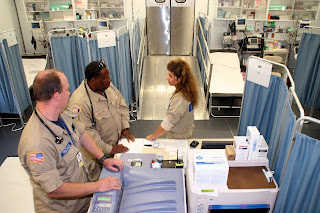A general surgery residency prepares students for exciting careers as surgeons. This highly in-demand career choice is not for the faint of heart and demands a lot from the physicians that work in these operating rooms. During the course of this three-year program, students are taken on an intense walk through surgical training. No surgeon is born to be a star. The human body takes a lot of careful training to be responsible for and as a surgeon, the health and well-being of the patient is always the top priority. This means that medical students who wish to continue their career with a surgery residency Georgetown must be willing to put forth the work to complete their training.
Though it should be a given expectation, it's important to note that students should be comfortable with the human body and less than desirable sights that will occur on the operating table.
Are You a Good Fit for a General Surgery Residency?
Surgical work is tough. In addition to working directly to impact the health of their patients, surgeons must be well-equipped to think on their own and make secure medical decisions in literally minutes or even seconds. If you are a person who enjoys a challenge, can think on their own, and has considered about making an impact on the greater good with your career, you may be a good fit for a general surgery residency Washington DC.
You may also want to examine your life and desires for your life. Surgeons spend a lot of time in the operating room. During a residency, students can expect to spend up to 80 hours in the hospital during any given week. If starting a family and having a lot of free-time for friends and interests is important to you, a general surgery residency Washington DC may not be a good fit for you. Like most medical professionals, it's important to take the lifestyle of the career into accounts with your personal interests and goals.
To learn more about the training in a surgery residency DC or to research programs in your area, visit: http://www.medstarhealth.org/.


